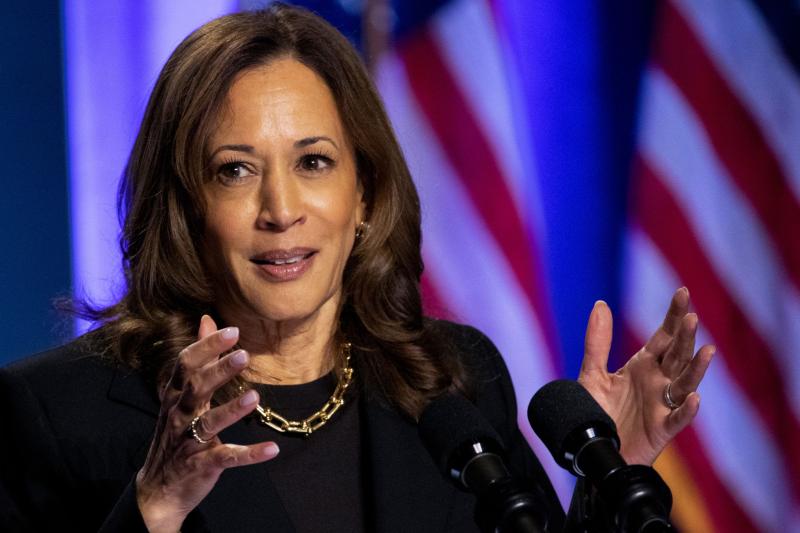US Election 2024: Kamala Harris as Potential First Woman President – What it Could Mean for India

- agastya9
- 21 Oct 2024 01:50 AM
- KamalaHarris
As Kamala Harris campaigns for the U.S. presidency in the 2024 election, her Indian heritage and policy priorities are likely to shape the future of U.S.-India relations. Experts believe that areas such as defense, technology, and climate cooperation could see considerable development under her leadership, particularly given her personal ties to India.
Key Sectors Influenced by Kamala Harris's Indian Roots
-
Her Indian Heritage: Kamala Harris has often spoken about her Indian mother, Shyamala Gopalan, who left India to pursue higher education in the U.S. Harris frequently draws upon her Indian heritage, which could lead to deeper cultural and diplomatic ties between the U.S. and India. Her connection to India might foster a sense of mutual understanding, potentially leading to smoother negotiations in various sectors, including trade and defense.
-
Trade Policies: Harris is expected to maintain the economic resilience policies established by the Biden administration, with a focus on boosting domestic production and reducing reliance on global supply chains. However, some divergence may occur in her approach to India, as she has previously criticized Prime Minister Narendra Modi’s government, particularly in response to the revocation of Jammu and Kashmir’s special status in 2019. This raises questions about how much of Biden’s policies Harris would continue if elected.
-
Strategic Cooperation: During Joe Biden's presidency, India and the U.S. enhanced their strategic and military cooperation, participating in joint exercises and increasing defense equipment sales. Harris is likely to continue this trend, with a focus on emerging technologies such as artificial intelligence, cybersecurity, and space exploration. The Quad, an informal strategic alliance that includes the U.S., India, Japan, and Australia, is expected to remain a key platform for Indo-U.S. collaboration under her potential administration.
-
Economic and Defense Relations: Harris's leadership could lead to stronger trade partnerships, particularly in the defense and technology sectors. While the tariffs imposed by Donald Trump were upheld by the Biden administration, it remains unclear if Harris would continue this approach. Unlike Trump, she is more likely to focus on domestic tax reforms, including imposing taxes on the wealthy and offering relief to the middle class.
-
Regional Security and China: Harris is expected to support India's position on regional security, especially concerning China’s growing influence in the Indo-Pacific. Analysts believe her administration would seek to maintain peace and stability in the region, likely with India as a crucial partner. Furthermore, her administration may prioritize partnerships in artificial intelligence, cybersecurity, and digital infrastructure, areas critical to both nations’ future security.
-
Climate Change Collaboration: Both India and the U.S. share concerns about climate change. Harris has shown a strong commitment to environmental issues, and a potential presidency would likely lead to greater collaboration between the two countries in addressing sustainable development and renewable energy goals.
Future of Indo-U.S. Relations
As the race between Kamala Harris and Donald Trump intensifies ahead of the November 5 election, the potential outcomes for U.S.-India relations remain a topic of global interest. With polls suggesting a close contest, Harris’s win could usher in a new era of cooperation between the two countries, particularly in technology, defense, and environmental sustainability.
Her historic candidacy as the first Black and South Asian woman to run for the presidency represents a significant shift in U.S. politics and may have far-reaching implications for how the U.S. engages with India in the future.





































